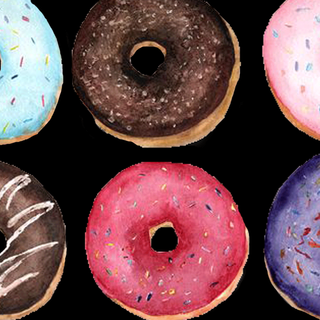We all know that stress leads to making bad food decisions—from picking high-calorie foods to eating more often. But new research has found that if you are stressed, and have young kids, it means that you’re not only making unhealthy food choices for yourself, but for your children too.
“Stress makes us choose more energy-dense foods, more comfort food,” says Myoungock Jang, one of the researchers and a University of Wisconsin–Madison nursing professor, in the press release. “When young kids are exposed to this kind of food environment, that influences the eating patterns they are learning.”
For the study, Jang and nursing professors Debra Brandon of Duke University and Allison Vorderstrasse of New York University surveyed parents from 256 familiesfrom the U.S. with children aged 2 to 5. They assessed the parents’ psychological well-being, sleep quality, and family mealtime habits and food choices.
They found that the higher parents psychological distress, the less healthy food was available at home and they engaged in more unhealthy feeding practices for their children.
Related on The Swaddle:
When and How to Start Solid Food for Babies
In-depth interviews with some of the parents also resulted in the finding that stressed families were prioritizing convenience over health.
“More often [stressed parents] didn’t feel they had enough energy and time to prepare food at home,” says Jang. “So, they were making choices like eating fast food more, and bringing home processed food that doesn’t take much work to prepare—but also isn’t healthy food.”
Jang, who is herself a parent to a six-year-old, says the behavior and findings were relatable. She says, “Sometimes I just don’t feel like I can battle with my son at the dinner table—’You need to eat more of this, more of that.” She adds, “So, we make something or go somewhere where I know I won’t have to entertain him, and I can kind of take a break.”
One good news, said researchers, was that they found no connection between parental stress levels and their child’s body mass index.
Related on The Swaddle:
How to Get Fussy Eaters to Eat the Food You Give Them
“The kids in the study were so young, and there isn’t as much obesity among those ages,” says Jang. “But we know that their eating patterns are established during this time in their life, and we wonder if this will influence their health when they begin to slow down and are more likely to gain weight.”
Therefore, for firsts, Jang would like for parents to recognize that stress can derail healthy eating habits. So, she advises them to try and ensure that they have healthy food on hand, time to prepare it and a relaxed environment to eat in.
“All parents are stressed to some level. We can’t avoid it,” she says. “So, it’s good to recognize that it’s important to try to do this the right way even though you’re stressed.”




